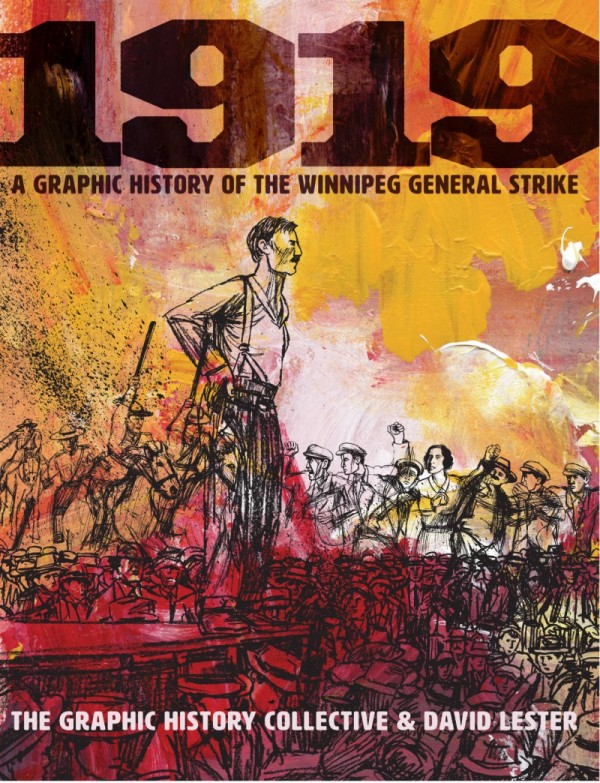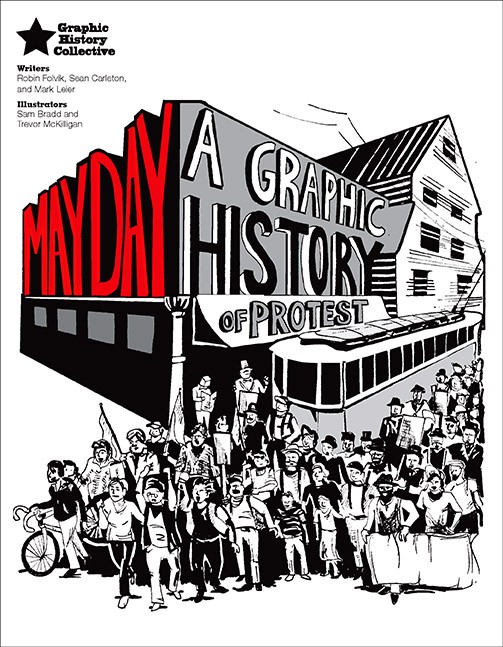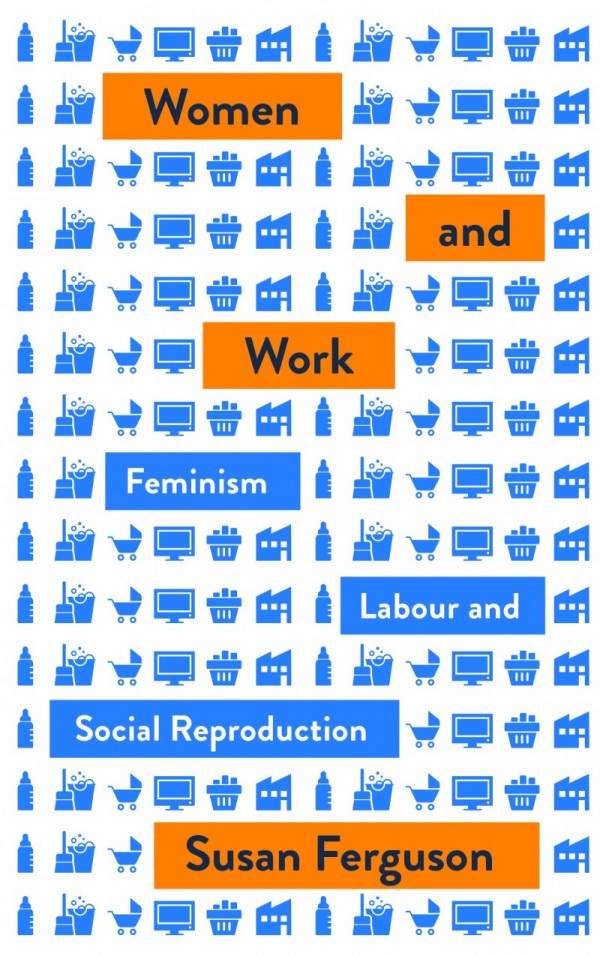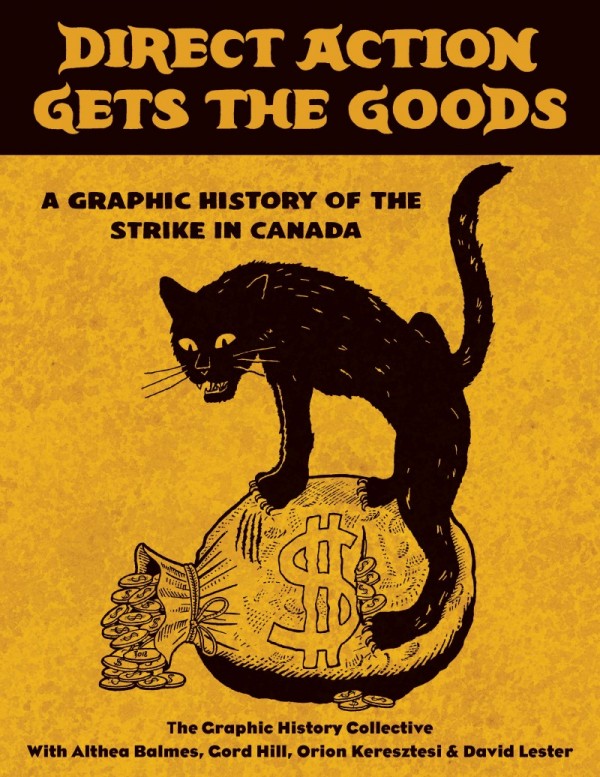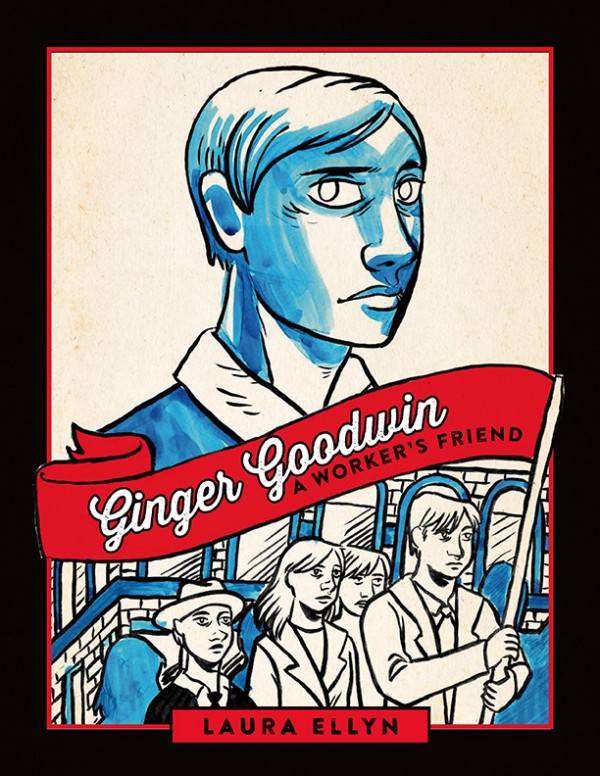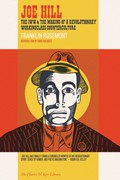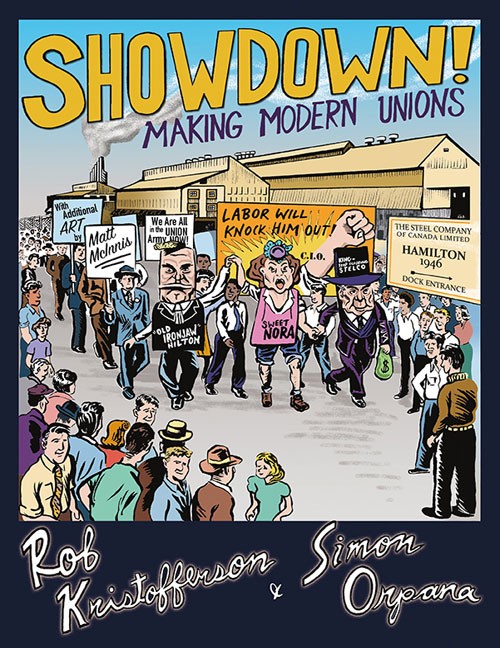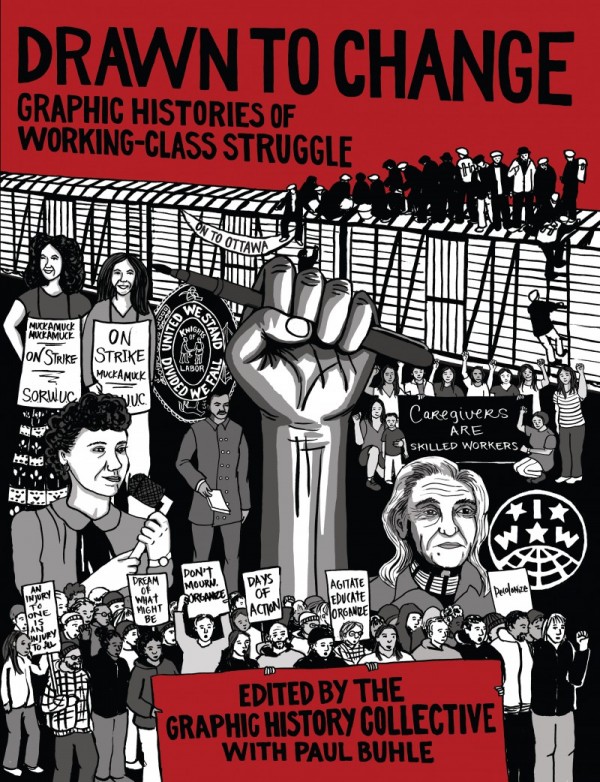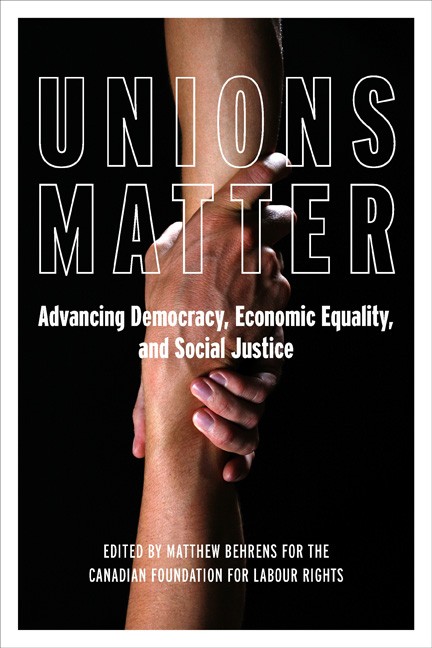Labour Day

In March 1872, despite unions being illegal, Toronto printers led a strike for a nine-hour work day. Workers organized massive rallies and eventually pressured the government of Conservative prime minister John A. Macdonald to legalize unions. Labour Day is celebrated on the first Monday of each September in Canada to honour that strike and the power of organized labour.
To celebrate Labour Day, we’ve put together a reading list that honours the militancy and dignity of the Canadian labour movement.
In May and June 1919, more than 30,000 workers walked off the job in Winnipeg, Manitoba. Although the strike lasted for six weeks, it ultimately ended in defeat—violently crushed by police, in collusion with state officials and business elites. This graphic history introduces new generations to the strike’s many lessons, including the power of class struggle and solidarity and the brutal tactics used to crush workers’ movements. Also available in French translation.
May Day: A Graphic History of Protest traces the development of International Workers’ Day, May 1st, against the ever-changing economic and political backdrop in Canada. The comic includes the reader as part of this history, and the story concludes that “we are all part of this historical struggle; it’s our history and our future.”
Susan Ferguson explores the history of feminist discourse, examining the ways in which feminists have conceptualized women’s work and placed labour, and its reproduction, at the heart of their program for emancipation. Engaging with feminist critiques of work, Ferguson argues that women’s emancipation depends upon a reorganization and radical reimagining of all labour.
Radical social change doesn’t come without radical art. The Graphic History Collective has created a lively illustrated chronicle of the strike in Canada. This comic book will inspire new generations to learn more about labour and working-class history and the power of solidarity.
With bright, strong imagery, this thoughtful comic traces the life, work, and death of labour activist and martyr Albert “Ginger” Goodwin. Drawing on local history and exploring the ways the history of labour organizing affects contemporary movements, Ginger Goodwin is a story that needs to be shared.
US labour’s most world-renowned martyr and celebrated songwriter, Joe Hill is remembered above all for his popular picket-line songs in the Little Red Songbook. A monumental work that explores the issues that Hill raised—capitalism, white supremacy, gender, religion, wilderness, law, prison, industrial unionism—and their enduring relevance and impact in the century since his death.
Based on interviews and archival materials, this graphic history illustrates how Hamilton workers translated their experience of work and organizing in the 1930s and early 1940s into a new kind of unionism and a new North American society in the decades following World War II.
Canadian labour history is brought to life in this anthology of nine short comics, each one accompanied by an informative preface. Working-class struggle is a fascinating story of conflict and coercion, resistance and triumph, with the drama of defeat mixed with the thrill of victory. Illustrate! Educate! Organize! Winner of the 2017 Wilson Book Prize.
In Canada, income inequality is now at its highest level since 1928. One of the root causes: the consistent chipping away of labour rights, which provide a powerful counterweight to the growing power of corporations and are key to a functioning democracy. Unions Matter affirms the critical role that unions play in creating greater economic equality and promoting the social wellbeing of all citizens.

